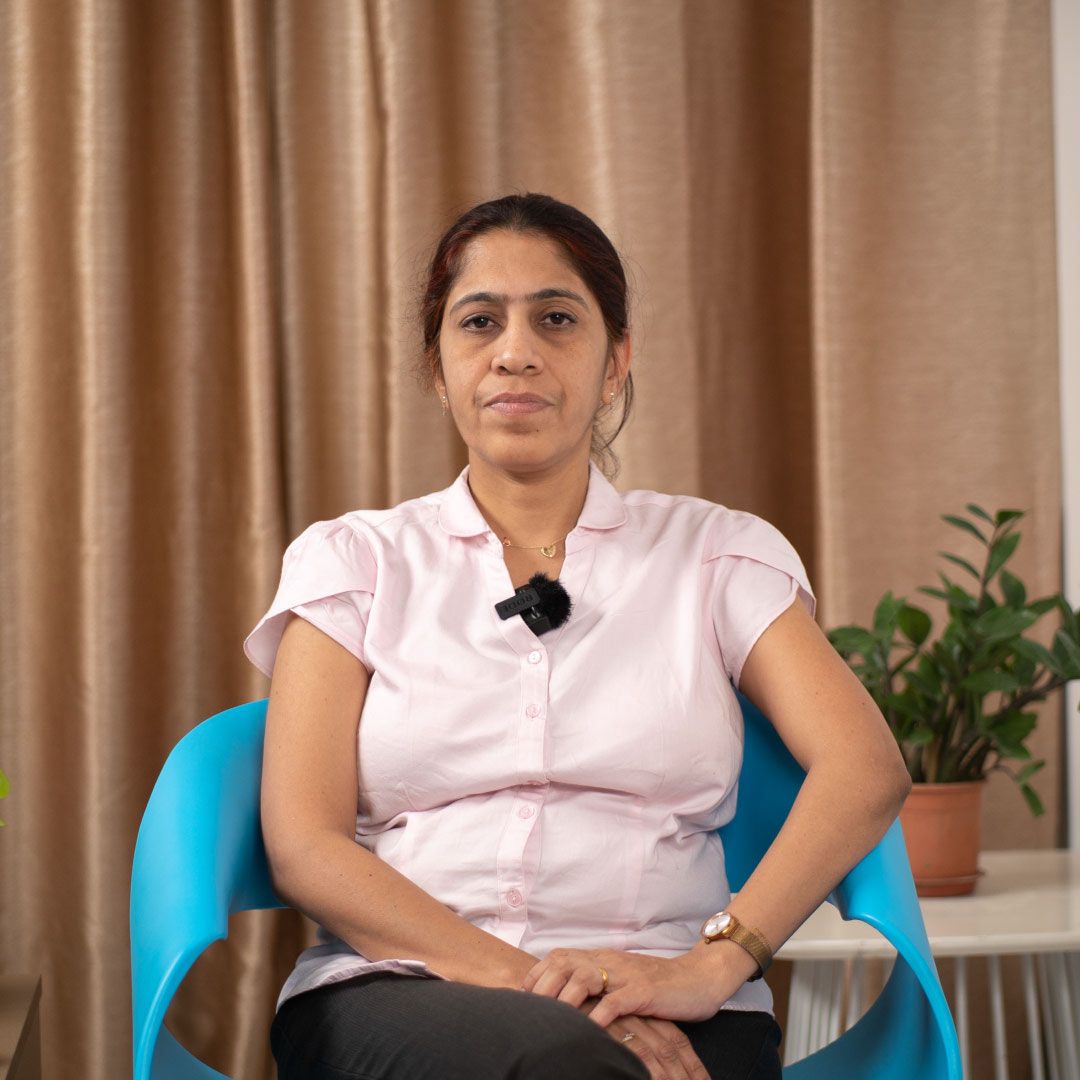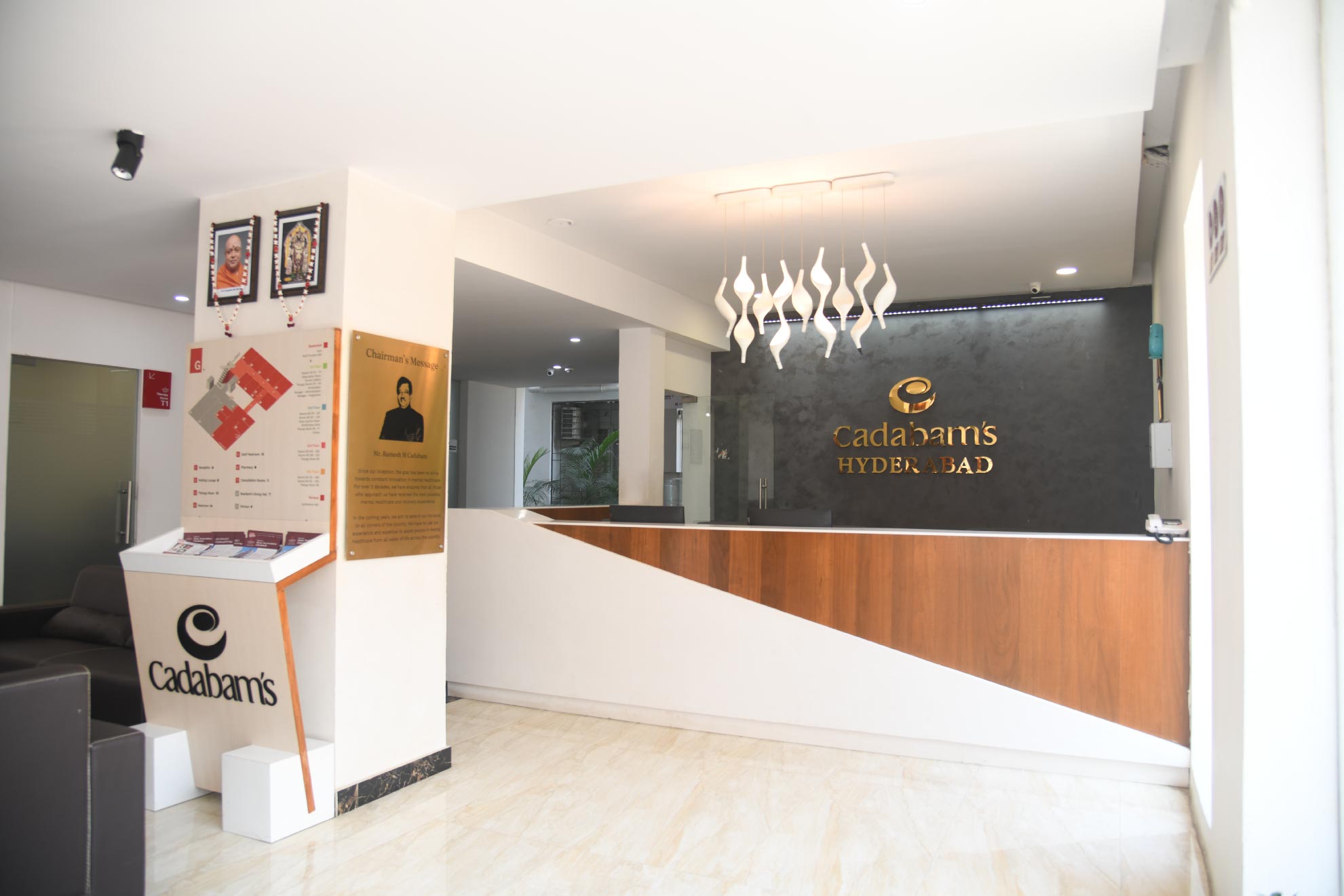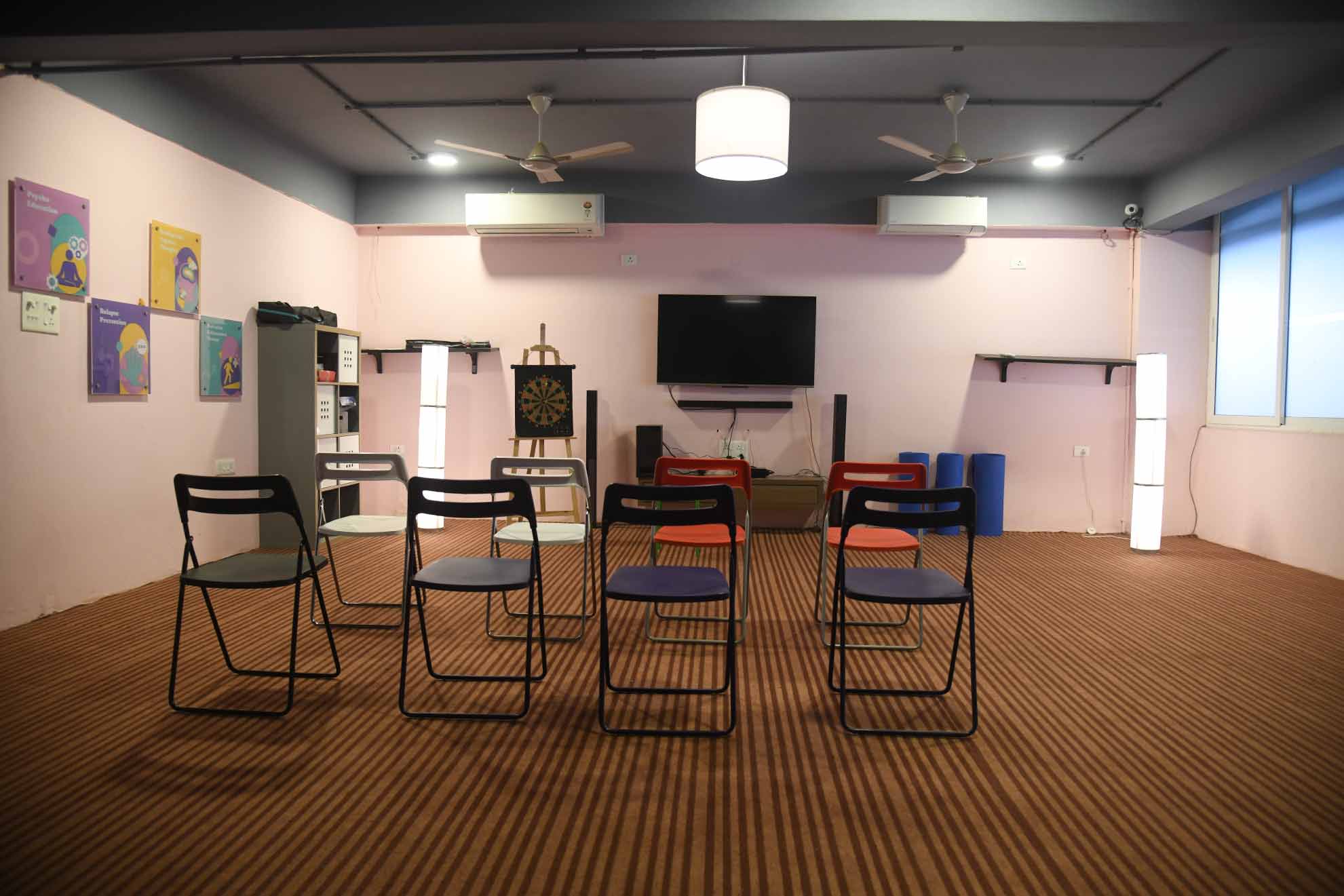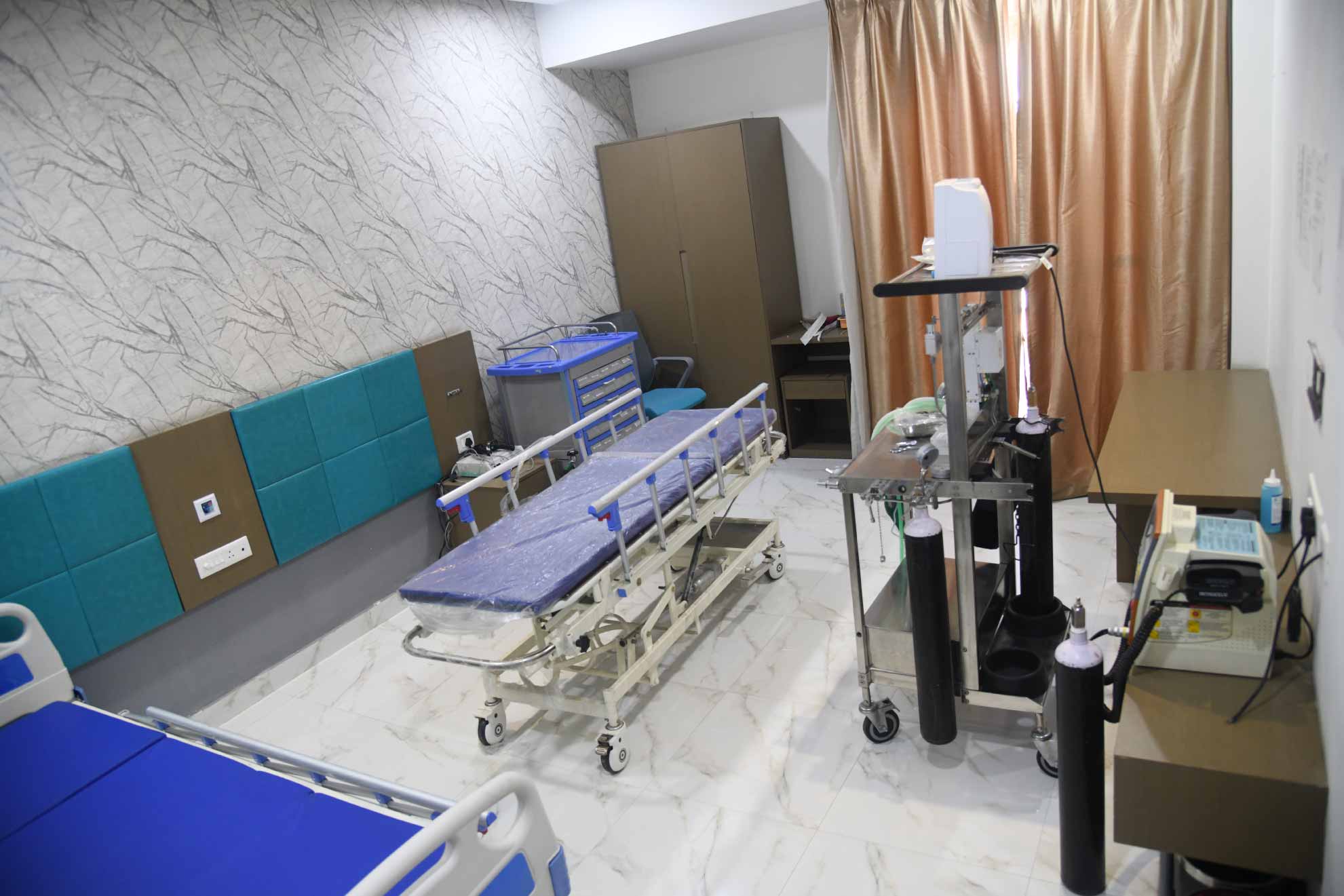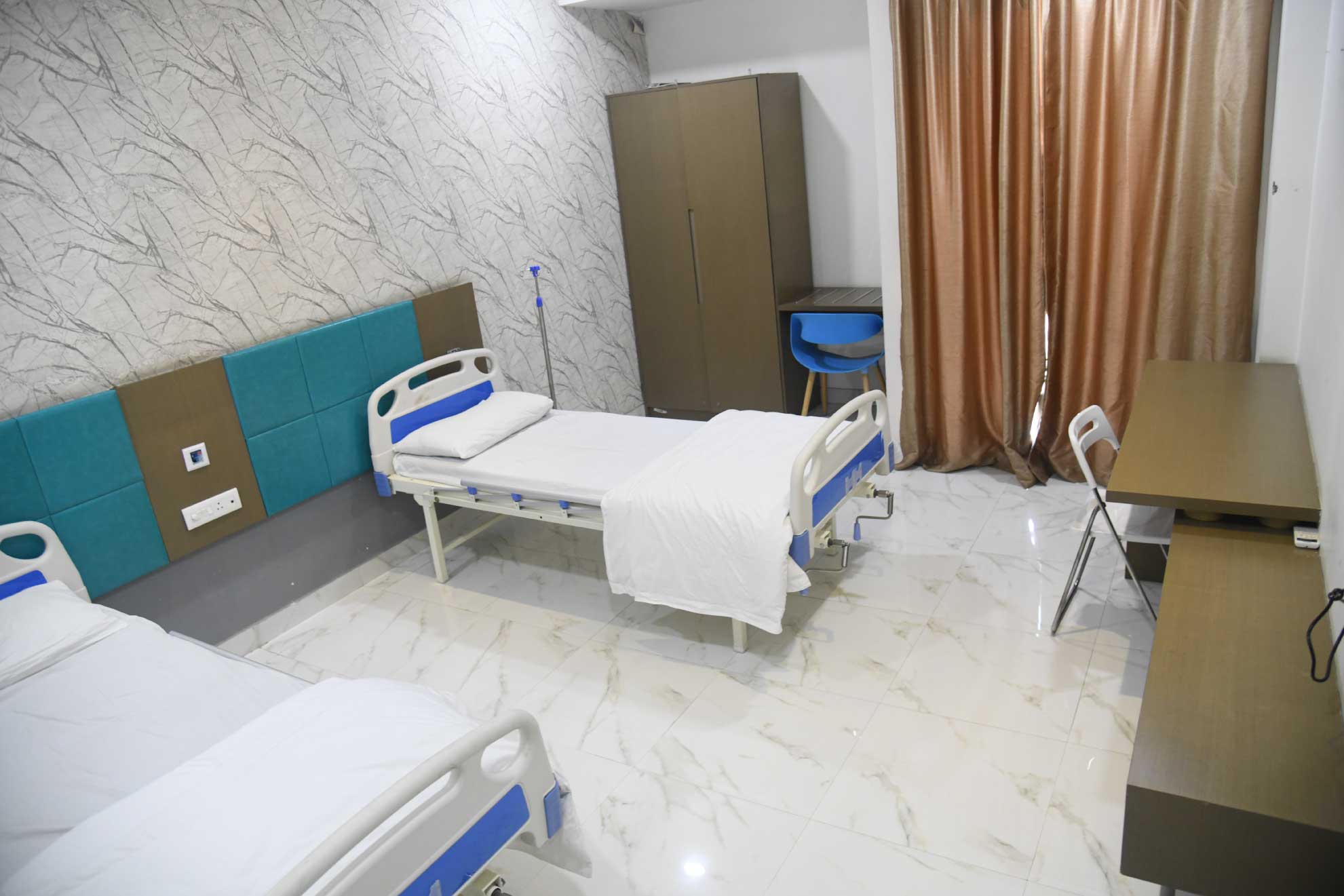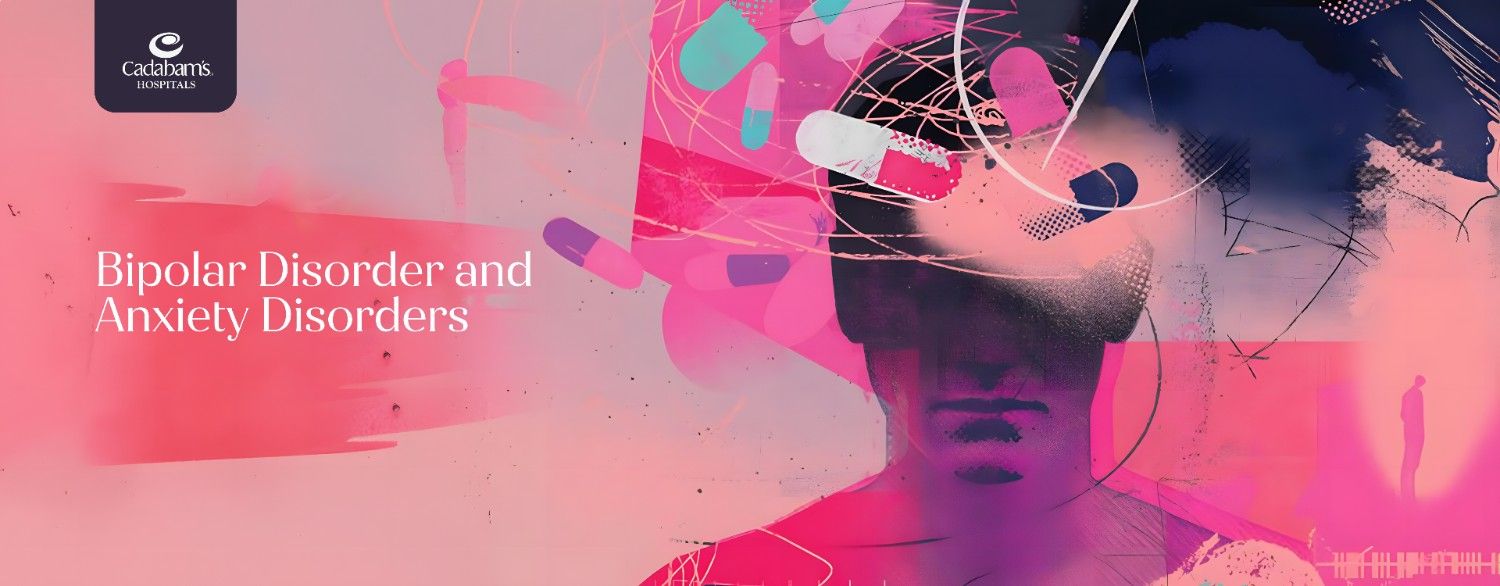What is Cognitive Behavioural Therapy (CBT)?
CBT is a widely used psychotherapy that helps people identify and change their negative thought patterns and behaviours. There are a number of therapists who use cognitive behavioural therapy (CBT) as an effective treatment option for bipolar disorder.
At Cadabam’s Hyderabad, our therapists use this transformative treatment approach to address the unique emotional and cognitive patterns that accompany bipolar disorder.
The Principles of CBT
In CBT, harmful thinking is identified and replaced with healthier thoughts and behaviours, promoting long-term recovery. By doing so, the treatment increases awareness of the connections between behaviour and cognition, emphasising that emotional responses are largely shaped by one’s understanding of specific situations, irrespective of their impact or disturbance.
How CBT Differs from Other Therapies
CBT is known for its proactive and problem-solving approach, which focuses on equipping individuals with practical coping strategies. This enables them to effectively manage difficult emotions and situations independently, promoting long-term self-reliance.
Our therapists at Cadabam’s, employ CBT to target present thought patterns and behaviours with a specific objective. This way we assist individuals in identifying negative thoughts and substituting them with constructive alternatives.
Looking for trusted psychiatrists in Hyderabad? Cadabam’s Hospitals delivers expert, tailored care for a wide range of psychiatric conditions.
Get Bipolar Disorder Diagnosed in Hyderabad
If you are looking for a facility in Hyderabad to treat bipolar disorder, then Cadabam’s can be an optimal option. We optimise our treatment plan, including CBT, to address a spectrum of needs. Our strategies help not just the patient, but their family too, during the healing process.
The Role of CBT in Treating Bipolar Disorder
CBT not only helps the patient manage their mood swing but also teaches them constructive coping strategies, addresses co-occurring conditions, improves their problem-solving abilities and reduces the risk of relapses.
Is CBT Effective for Managing Bipolar Disorder?
CBT plays an important role in helping patients learn how to manage bipolar disorder. It equips the patient with powerful coping strategies which help them handle their mood swings, counter negative thought patterns, and adopt a balanced lifestyle. All these strategies and behaviours promote stress reduction, improve overall wellness, and reduce the risk of relapses.
Combining CBT with Other Treatments for Bipolar Disorder
Our mental health experts at Cadabam’s Hyderabad integrate a variety of therapies with CBT to address bipolar disorder that include: –
Dialectical Behavioural Therapy (DBT): DBT is a therapy that helps individuals with bipolar disorder recognise and accept their current emotional states and, at the same time also helps them learn strategies to manage mood swings and impulsive behaviours effectively.
Therapeutic Techniques: A therapist specialised in bipolar disorder can teach the patient practical methods for emotional regulation, coping with discomfort, and practising mindfulness. These techniques are crucial for maintaining composure and enhancing overall well-being.
Motivational Enhancement Therapy (MET): MET is designed to encourage individuals to develop a desire for optimistic change and resolve their contradictions about managing bipolar symptoms. It authorises individuals to adopt healthier habits and attitudes towards their condition.
Family Counselling: Involving family members in therapy sessions can enormously improve treatment outcomes for bipolar disorder. It creates a supportive space for both the individual and their loved ones, helps them understand the challenges and impacts of the conditions, reduces stigma, and facilitates an environment that supports recovery.
Engaging Family and Support Systems in the CBT Treatment Process
When a person goes through an episode of mania or depression, it not just impacts them, but also affects their family members. Thus, it is important to involve family members in the treatment process.
At Cadabam’s Hyderabad, our treatment plans are customised in such a way that it helps families navigate and manage the condition. We educate, share knowledge, teach coping strategies, and offer emotional support through family therapy which improves family dynamics and makes them more accommodative.
Tailoring CBT to Individual Needs
At Cadabam’s we customise the therapy so that it can meet the needs of every patient. We meticulously craft treatment strategies and develop a care plan that fits every unique requirement and aspiration.
Based on the severity of the conditions, medication, lifestyle adjustments, follow-up appointments, and therapies are included in the treatment plans. The customised nature of the treatment plan ensures long-term recovery and overall well-being.
Support Systems and Environment at Cadabam’s
Our team at Cadabam’s is comprised of experienced psychiatrists, psychologists, counsellors, therapists, and support staff who ensure the best care possible for every individual with bipolar disorder.
We have created a space where both the patient and their family members feel welcomed and supported, which allows them to learn and recover at their own pace without any judgment. With this, we aim to offer benevolent care, understanding, and shared success.
Psychologists in Hyderabad at Cadabam’s Hospitals deliver expert, individualized care for a wide range of mental health conditions.
What to Expect in a CBT Session for Bipolar Disorder
At Cadabam’s we manage the ups and downs of bipolar disorder by implementing a fusion of compassion and systematic approach.
The sessions usually involve both the therapists and the patient, and together, they work to identify triggers, build coping mechanisms, and address the disorder’s influence on many facets of life.
Using this comprehensive approach, we assist clients in developing resilience and understanding of their symptoms. By employing evidence-based therapies like CBT and hands-on exercise, we help clients learn how to negotiate the challenges of relationships and maintain long-term success.
Whether you need therapists in Hyderabad, Cadabam’s Hospitals ensures expert care tailored to your needs.
Why Choose CBT for Bipolar Disorder Treatment?
Although medication is still the mainstay of treatment for bipolar disorder, cognitive behavioural therapy is an additional effective tool that can help reduce symptoms and improve overall functioning.
Benefits of CBT Therapy on Bipolar Disorder Patients
People with bipolar disorder benefit greatly from cognitive behavioural therapy, as its advantages extend beyond merely managing symptoms. It can help people improve their self-awareness by identifying warning signs of mood swings; potentially minimising the severity of mania or depression episodes.
Besides, CBT gives patients the tools they need to question negative thought processes that may be a factor in mood fluctuations. It also imparts useful techniques for handling interpersonal difficulties, enhancing sleep patterns, and reducing stress.
Real-Life Impact of CBT on Bipolar Disorder Patients
CBT helps individuals learn to identify triggers and early warning signs of mood swings which allows them to take proactive steps to reduce the severity and duration of episodes.
This enhanced self-awareness and ability to manage their condition translates to fewer relapses, longer periods of stability, and ultimately, a significant improvement in quality of life.
Long-Term Success with CBT
Improved emotional well-being, stable relationships, and effective control of mood swings are signs of long-term success with CBT.
At Cadabams, we use the therapy to effectively target negative thought patterns that are contributing to mood instability and help clients learn strategies to handle triggers and stressors. By focusing on long-term benefits, individuals can manage their condition with greater resilience.
When Should You Ask for Help?
If you’re experiencing mood swings, like intense happiness or deep sadness which lasts for weeks, and these shifts disrupt your sleep, energy levels, spending habits, or ability to function in daily life, work, or relationships, it’s time to seek professional help.
Especially if you have thoughts of self-harm; early intervention with a mental health professional can make a big difference in managing bipolar disorder and improving overall well-being.
Find the Best Rehab Centre for Bipolar Disorder in Hyderabad
When searching for a suitable rehab treatment centre in Hyderabad for bipolar disorder, there are a few things to consider, like whether the facility can offer timely service or if the facility offers a holistic treatment approach. The facility should have skilled and experienced professionals who can provide medication management, therapies, and social support with expertise and compassion.
If you are looking for such a facility in Hyderabad, then Cadabam’s can help you. With our 30 years of experience in mental health, we offer a variety of treatment options at our state-of-the-art facility with a team of experts.
Experienced counsellors in Hyderabad at Cadabam’s Hospitals provide personalized support for a wide range of mental health concerns.
Why Choose Cadabam’s?
At our centre, we specialise in empowering individuals and families living with bipolar disorder. Our team of experts provides the knowledge and confidence needed to manage this long-term condition effectively. We take a holistic approach, focusing on both physical and mental health to improve overall well-being.
Expert Team of Psychiatrists and Therapists for Bipolar Disorder
Mental health conditions like bipolar disorder must be diagnosed properly and treated by medical experts. A group of skilled psychiatrists and therapists with backgrounds in bipolar disorder treatment work at Cadabam’s, offering continuous assistance to clients as they move forward in their journey to recovery.
State-of-the-Art Facilities in Cadabam’s for Bipolar Disorder
Cadabam’s offers cutting-edge bipolar disorder treatment with advanced facilities. Our multidisciplinary team utilises these resources to create personalised recovery plans for long-term success.
Integrating Holistic Therapies for Bipolar Disorder
At Cadabam’s Hyderabad, our approach to bipolar disorder therapy promotes long-term stability and well-being. We offer a safe, supportive environment where individuals can manage their condition at their own pace, without feeling rushed, and feel empowered to continue their journey towards a balanced life.
Continued Care and Follow-Up Programs for Bipolar Disorder
At Cadabam’s Hospital, our top priorities include support and aftercare for those managing bipolar disorder. We go beyond providing the essentials for ongoing stability and wellness by offering personalised support tailored to each individual’s needs.
Top Bipolar Disorder Doctors at Cadabam’s Hospitals
Psychiatrist in Hyderabad | Psychologist in Hyderabad | Psychiatrist in Bangalore | Therapist in Hyderabad |
Counsellor in Hyderabad | Therapist in Bangalore | Psychologist in Bangalore
Rehabilitation Centres For Bipolar Disorder at Cadabam’s Hospital
Rehabilitation in Bangalore | Rehabilitation Hyderabad
Best Bipolar Disorder Treatments Offered at Cadabams
Group Therapy Bangalore | Group Therapy Hyderabad | Home Services Hyderabad | Neurofeedback Hyderabad | Family Therapy Bangalore | Family Therapy Hyderabad | Home Care Bangalore | PsychoTherapy Hyderabad | Neurofeedback Bangalore | Emergency Bangalore | Emergency Hyderabad | RTMS Hyderabad | RTMS Bangalore | Biofeedback Hyderabad
More Additional Resources About Bipolar Disorder
Pressured Speech in Bipolar Disorder | Bipolar Disorder Symptoms in Men | Dysphoric Mania | Bipolar Psychosis | Overlap Between OCD and Bipolar Disorder | Pregnancy with Bipolar Disorder | Sleep Complications in Bipolar Disorder | Bipolar Disorder vs. Schizophrenia | Schizoaffective Disorder | Unipolar vs Bipolar | Bipolar Disorder vs Borderline Personality Disorder | Bipolar Disorder in Women | Anxiety Vs Bipolar | Childhood Bipolar Disorder | Bipolar Disorder Tips | Bipolar Disorder in Children
FAQ
How does CBT help in treating bipolar disorder?
Cognitive Behavioural Therapy (CBT) helps treat bipolar disorder by identifying and changing negative thought patterns and behaviours. It aids in mood stabilisation, reduces the risk of relapse, and improves coping strategies. Cadabam’s CBT also supports medication adherence and enhances overall functioning and quality of life.
Which CBT techniques are used for bipolar disorder?
CBT techniques for bipolar disorder include cognitive restructuring to challenge negative thoughts, behavioural activation to increase engagement in positive activities, mood monitoring to track mood changes, problem-solving skills to manage stressors, and developing coping strategies for dealing with triggers and maintaining mood stability.
What does a typical CBT session look like?
A typical CBT session involves discussing current issues, identifying negative thought patterns, and working on strategies to change these thoughts and behaviours. Our therapists may set homework assignments, like journaling or practising new skills, to reinforce the session’s work and track progress over time.
How effective is CBT for Bipolar Disorder?
CBT is effective in maintaining adherence to medications and helping the person manage other responsibilities like work and relationships as they learn to manage their symptoms.
What are the benefits of CBT for Bipolar Disorder?
The benefits include learning more about the nature of the illness, identifying dysfunctional ways of thinking and behaving, gaining insight into how the person’s disorder affects others around them, finding strategies to cope and manage the symptoms and learning about the warning signs that helps prevent a full-fledged relapse.
How many numbers of sessions are required?
The number of sessions required often depends on the person’s condition and how responsive they are in response to therapy.














 Available
Available


